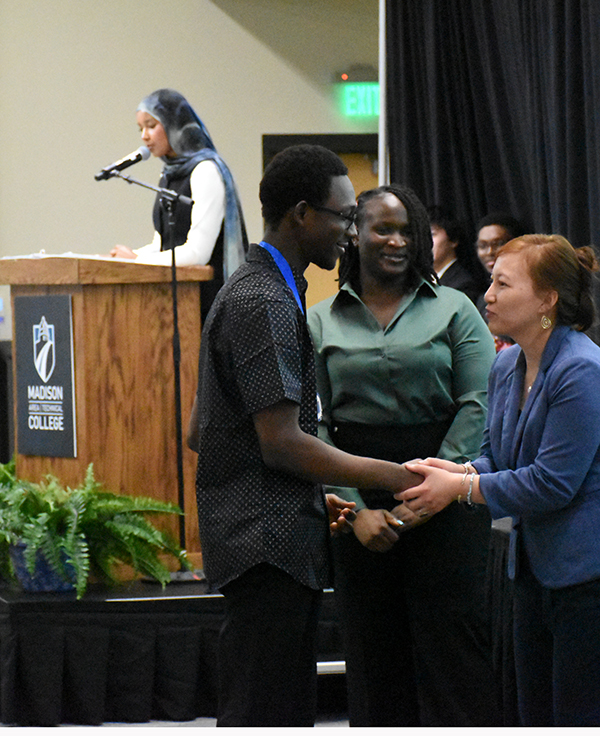Studies show students are often sleep deprived
March 22, 2017
Did your spring break consist of lying in your bed catching up on sleep after weeks of drinking two pots of coffee a night just to finish your homework? Or maybe you finally got to have free time and are still sleep-deprived after your week off.
Madison College’s Johanna Valdez expresses her thoughts on the sleeping life of a college student. Her thoughts are supported by research from the National Institute of Health and Campus Mind Works.
Valdez is a sophomore studying criminal justice, a program that requires her to do about ten hours of homework a week along with her other responsibilities outside of school.
On a typical week night, Valdez will go to sleep around 10 p.m. and wake at 5 a.m. She reports getting around seven hours of sleep each night and states, “I’m tired and don’t function well for about the first hour.”
Valdez finds herself never being able to catch up on sleep and comments that her fatigue makes her not want to participate in extracurricular activities anymore. Along with her shortage of energy, Valdez expresses that lack of sleep “most definitely affects my attitude.”
Studies from the National Institute of Health reflect Valdez’s comments stating, “College students are one of the most sleep-deprived populations.” The lack of sleep students experience not only exhausts them, but it goes hand-in-hand with their class grades. The National Institute of Health confirms that, “Sleep deprivation in students has been linked to lower GPAs because sleep affects concentration, memory and the ability to learn.”
Valdez notes that her issue is not falling asleep, but it is being able to stay asleep. Campus Mind Works gives helpful tips for better sleeping, including:
Try to get the right amount of sleep. “The best way to determine the right amount of sleep for you is to spend one week waking up naturally without an alarm clock. At the end of the week, average out the amount of sleep you received each night,” according to Campus Mind Works.
Incorporate some outside time everyday. Getting outdoors helps your body’s sleep and wake cycles.
Try to fit some type of daily physical activity into your schedule. Exercise has the ability to reduce stress and promote regular sleep and wake patterns. Avoid exercising three to four hours before going to bed; this can help avoid waking during the night and make falling asleep easier.
Limit your caffeine and nicotine use, as these are stimulants that disrupt sleep. If you tend to stay up late, try small energy-boosting snacks or decaffeinated coffee instead of caffeinated beverages to stay alert.
Avoid alcohol close to bedtime. If you have an alcoholic beverage, try to avoid said drink four to six hours prior to bed. Campus Mind Works express that “A common but inaccurate belief is that alcohol helps people sleep. Although it may help people fall asleep faster, research has shown that alcohol disrupts sleep throughout the night. Alcohol aggravates snoring and sleep apnea,” according to Campus Mind Works.
Practice time management with your schoolwork and extracurricular activities. Lying in bed worrying about the next day or week can keep you from falling asleep. Staying on top of schoolwork will decrease your overall stress and worry, reducing last minute cramming.
Valdez concludes that she believes, “students’ sleeping habits differentiate based on certain days of the week depending what they have going on that day which makes it hard to have a good, consistent sleeping schedule.”
Students who follow the tips provided by Campus Mind Works may experience better sleep patterns and feel more rested and alert.






























